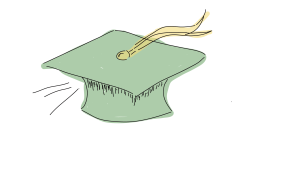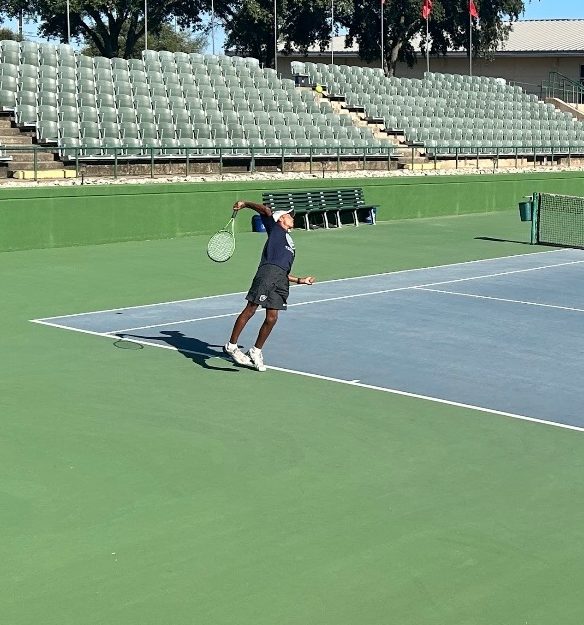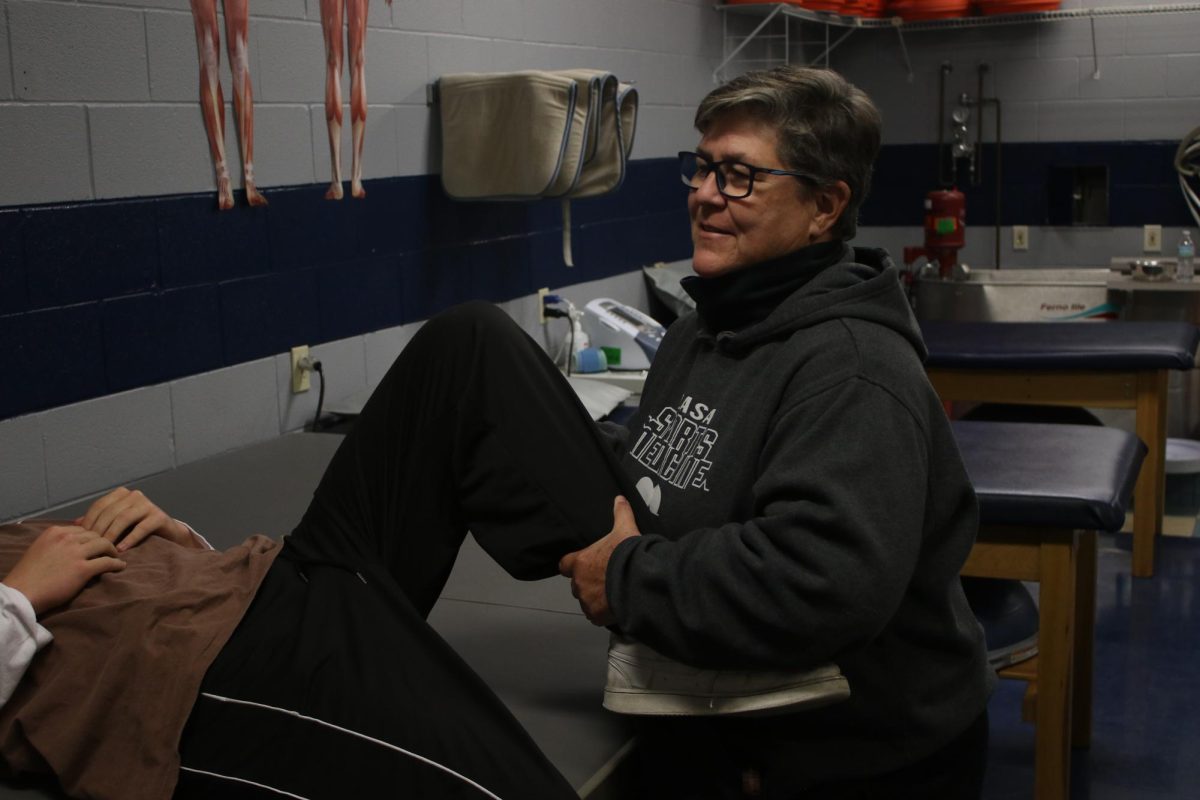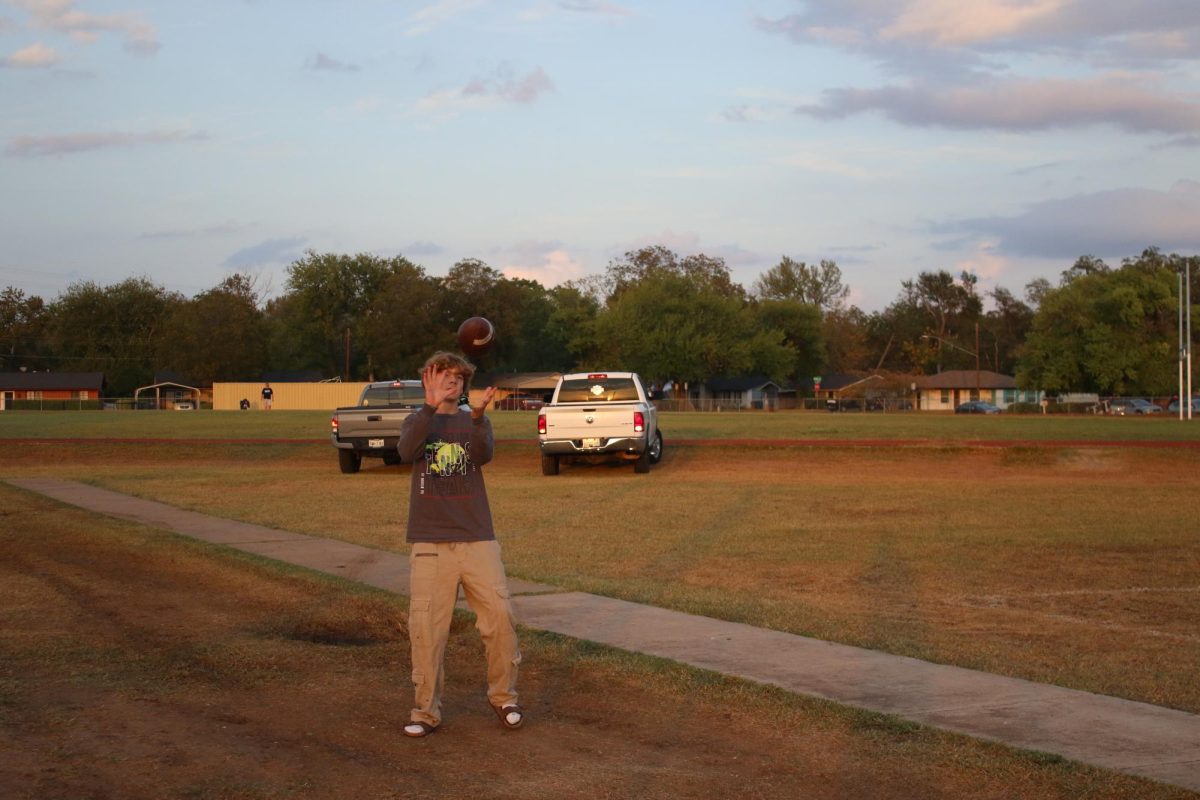
While seniors across the country begin to hear back from colleges and think about where they will spend the next four years of their lives, many student-athletes started the process much earlier and have already committed. Student-athletes are in communication with college coaches well before other students submit their applications with scholarship offers at schools of varying competitive levels ranging from Division 1 (D1) to Division 3 (D3). LASA students are no different, attracting offers from prestigious colleges all across the country.

Marin Maycotte, a senior athlete at LASA, has made a commitment to her passion for rowing by securing a spot on the D1 team at the University of Washington. As she starts on her collegiate journey, Maycotte hopes that her skill as a rower will continue to flourish and leave a lasting mark on the collegiate rowing scene.
“I love rowing and I have been doing it for 5 years,” Maycotte said. “I feel like rowing makes me better in many ways including being physically fit, improving [my] mental health, giving me a routine to help manage my time well, and helping me be a better student. These are all aspects I want to continue to have in college to be a successful student-athlete. Also rowing in college has so many benefits. I couldn’t pass that up.”
Maycotte carefully considered colleges that would nurture her passion for rowing. In her decision-making process, she sought institutions that could provide the right environment and support for her continued success in the sport.
“I knew I wanted to row at a serious and competitive school, so I looked at the NCAA (National Collegiate Athletics Association) rankings to see what schools were at the top,” Maycotte said. “I also did summer camps and visits at the colleges and talked to students there.”
Maycotte faced a challenging junior year as she navigated the dual demands of maintaining strong academic performance and honing her rowing skills. Recognizing the crucial need for effective time management, she concluded that mastering the art of knowing when to stop is a valuable skill. Balancing these responsibilities defined the importance of finding an equilibrium between academic pursuits and athletic dedication.
“It was very difficult, especially during junior year,” Maycotte said. “I had to keep up my grades while doing well at rowing. I had lots of spreadsheets to organize everything which helped a lot. I also had to remember to update coaches every few weeks and reach out to new coaches. I kept a spreadsheet to keep track of everything.”
Max Vale, another LASA senior, has also committed to participating in high-level collegiate sports at the California Institute of Technology (CalTech), joining their D3 water polo team. For him, collegiate water polo is something that he was set on playing, but he also wanted to make sure that the college he ended up at fit with his academic interests.
“I knew that water polo was something that I really enjoyed,” Vale said. “I wanted to keep playing in college because it would still be something I would enjoy. It would keep me in shape, and the exercise can help you focus on your studies. The teams that sounded like a good fit to me I looked into more, and then I narrowed it down even further based on what I wanted to study, computer science.”
Vale prioritized his studies over water polo and sought out a college that aligned with his career aspirations. Recognizing the importance of a well-rounded education, he aims to improve his skills both in and out of the pool to pave the way for a successful and fulfilling career.
“Academics was the most important factor for me,” Vale said. “I was never going to become an Olympic player, nor did I want to. So, I needed college to be able to set me up for work. Water polo was probably the second factor. I really enjoy it and have been playing competitively for almost eight years now. I knew I didn’t want to abandon it. When looking at teams in particular, I wanted to see how close they were to each other—would they hang out outside of practice? Would they give each other advice?”
Megha Siddapureddy, a 2022 LASA alumna, currently swims competitively at Case Western Reserve University. Having been a part of LASA’s varsity swim team, she pursued her passion and accomplished swimming for the collegiate level, demonstrating her commitment to both her education and athletic pursuits.
“I just really liked swimming and the atmosphere it creates,” Siddapureddy said. “I loved being part of a team with highly motivated and physically tough people and I wanted to continue that in my college career.”
Siddapureddy attributes her journey to the unwavering support and guidance of her coaches. She acknowledged that she wouldn’t have reached this point without their invaluable contributions to her development.
“My coach helped guide me through the whole recruiting process because it can be overwhelming at first,” Siddapureddy said. “He helped me formulate my emails and gave me tips and counters on what questions to ask each college coach and how to grab their attention. Not only that, my coach helped me with my swimming too and improved my times.”
The consensus among these LASA athletes is the recognition of communication as a fundamental skill that not only fosters team cohesion but also plays a pivotal role in individual growth and success. As Vale learned first-hand, something as simple as an email can be a door to opportunity and a brighter academic and athletic future.
“I would say to email anyone you can,” Vale said. “A lot of coaches don’t respond to just cold emails, but a lot do, and you never know if sending an email could change your life.”






